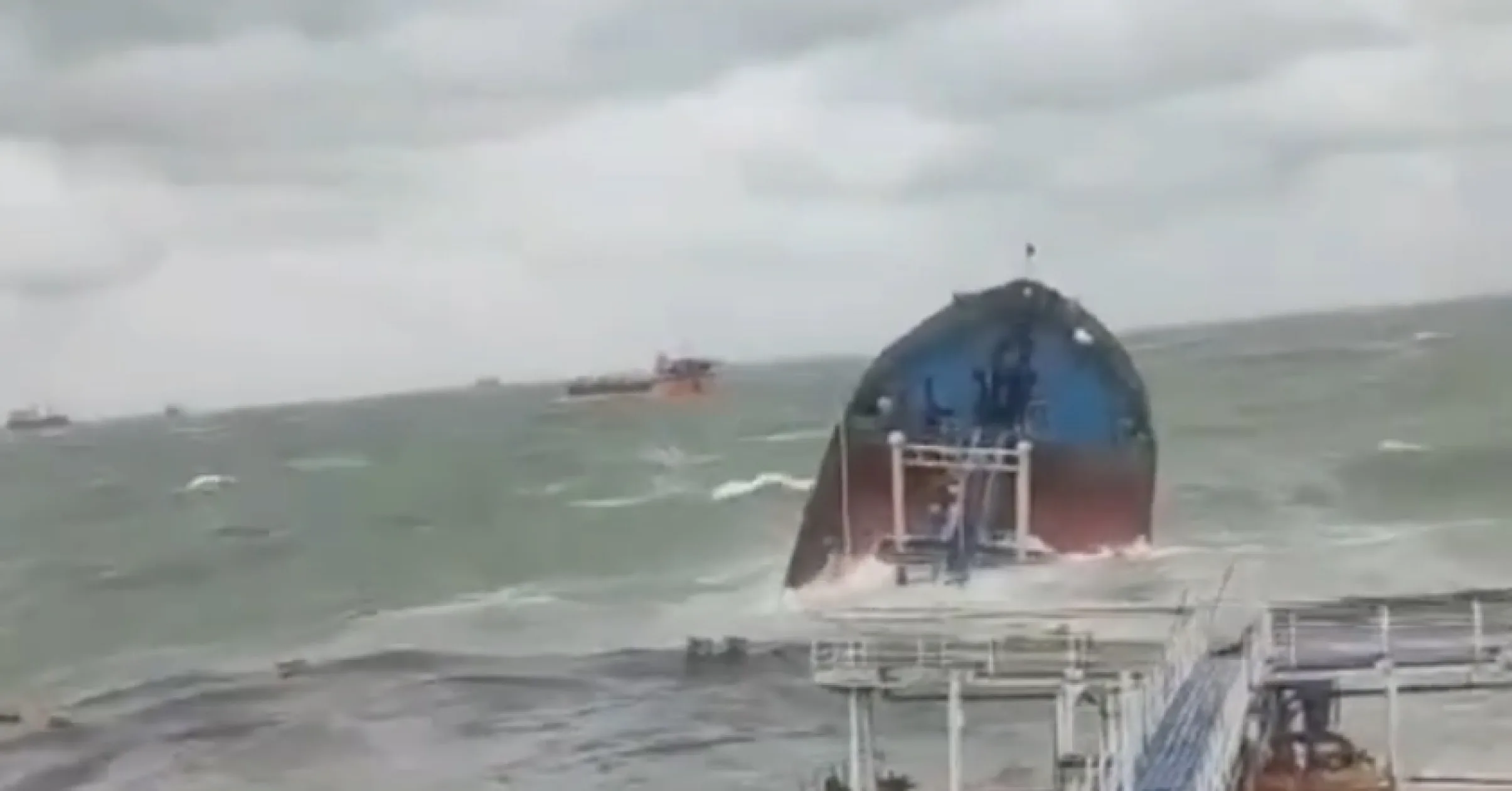In the Kerch Strait, which connects the Black Sea and the Sea of Azov, 4,300 tonnes of fuel oil and possibly other oil products have been spilled as a result of the accident of two Russian tankers during a storm. The vessels were transporting fuel for the Russian fleet, but their location system had been disabled for 12 days before the accident. It is known that the tankers’ route was from Volgograd to the Kerch Strait, Greenpeace Ukraine reported.
Experts say that pollution in this region could have serious environmental consequences. According to Dr Paul Johnston, head of Greenpeace’s research laboratories, weather conditions and the direction of the currents make it difficult to localise the spill, and if the oil gets to the shoreline, clean-up will be extremely difficult. The biggest risk is fuel oil, a heavy oil product that has a significant impact on marine life and ecosystems.
See also: Greenpeace Ukraine Director Natalia Gozak: “After the war, there should be a country left suitable for the life of future generations”
A similar accident already took place in this region in 2007, when 1.2 thousand tonnes of fuel oil spilled from a Russian tanker near the Tuzla Peninsula. The consequences of that disaster were still evident a year later.
The situation is further complicated by the lack of active measures taken by Russian officials to minimise the impact of pollution on the environment. If the tankers sink, a long-term oil spill is possible, which will exacerbate the damage to the marine ecosystem.
Environmentalists stress the need for urgent action to reduce further spills and preserve the region’s unique natural balance.
Read also: Nuclear disaster in Ukraine caused by Russia: Greenpeace’s detailed analysis



